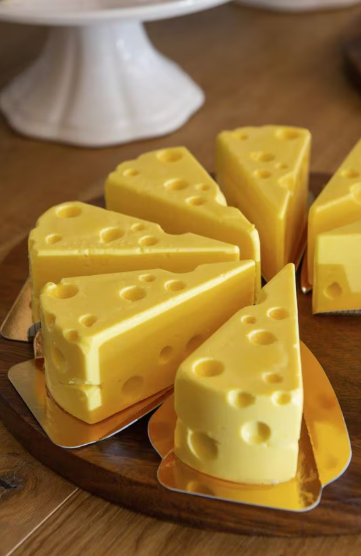
Is Cheese a Healthy Snack? Understanding Its Benefits, Risks, and Best Options
Cheese is a widely enjoyed snack known for its rich and creamy texture, packed with protein, calcium, and healthy fats. While it’s delicious, it’s important to consider both the benefits and potential risks of incorporating cheese into your diet. Some cheeses are high in saturated fat and sodium, which can affect heart health if consumed in excess. In this article, we’ll break down the nutritional benefits, possible risks, and provide recommendations for the best cheese options to enjoy as a snack.
Nutritional Breakdown of Cheese
Cheese is a nutrient-dense food that provides several essential vitamins and minerals. The nutritional value can vary significantly depending on whether the cheese is processed or natural. Here’s a comparison of the typical nutritional content in a one-ounce serving:
| Nutrient | Natural Cheese (e.g., Cheddar, Mozzarella) | Processed Cheese (e.g., American, Cheese Slices) |
|---|---|---|
| Calories | 80–120 kcal | 60–100 kcal |
| Protein | 6–8g | 4–6g |
| Fat | 6–10g | 5–9g |
| Saturated Fat | 3–6g | 3–5g |
| Carbohydrates | 0–1g | 1–3g |
| Calcium | 150–250mg | 100–200mg |
| Vitamin B12 | 0.5–1mcg | 0.4–0.8mcg |
| Sodium | 100–300mg | 250–500mg |
| Probiotics | Present in aged, fermented cheeses (e.g., Gouda, Swiss) | Rare or absent |
Key Differences: Processed vs. Natural Cheese
Processed Cheese
Processed cheese often contains artificial additives, preservatives, and emulsifiers. While it may have fewer calories, it typically lacks the beneficial probiotics and higher nutrient content found in natural cheese.
Natural Cheese
Natural cheese, made with milk, salt, and enzymes, retains more nutrients like calcium and protein. Aged or fermented varieties, such as Swiss and Gouda, also contain probiotics, which are beneficial for gut health.
To make the healthiest choice, opt for natural cheese, as it tends to have fewer additives and offers more nutritional benefits.
Health Benefits of Cheese as a Snack
-
High in Protein & Healthy Fats
Cheese is an excellent source of high-quality protein, essential for muscle growth and repair. It also contains healthy fats that provide long-lasting energy, keeping you satisfied between meals without the sugar crash often associated with processed snacks. -
Rich in Calcium for Bone Health
Cheese is one of the best sources of calcium, which is critical for maintaining strong bones and preventing osteoporosis. Hard cheeses like Parmesan and Cheddar are particularly rich in calcium, making them great for bone health. -
Supports Gut Health (Fermented Cheeses)
Fermented cheeses like Swiss, Gouda, and cheddar contain probiotics, which support digestive health by promoting a balanced gut microbiome. This can lead to improved digestion, better immune function, and even enhanced mood. -
Perfect for Low-Carb & Keto Diets
For those on low-carb or ketogenic diets, cheese makes an excellent snack choice. With its low carbohydrate content and high levels of protein and fat, it helps maintain energy levels and keeps you on track with your dietary goals.
Potential Downsides of Eating Cheese
-
High in Saturated Fat & Cholesterol
While cheese is packed with beneficial nutrients, it also contains saturated fat, which, when consumed in large quantities, can raise cholesterol levels and increase the risk of heart disease. Moderation is key, and it’s wise to choose lower-fat options when possible. -
Some Cheeses Are High in Sodium
Certain cheeses, especially feta, blue cheese, and processed varieties, contain high amounts of sodium, which can contribute to high blood pressure. If you’re concerned about sodium intake, opt for cheeses with lower sodium content. -
Lactose Intolerance & Dairy Sensitivities
For individuals who are lactose intolerant or have dairy sensitivities, cheese can cause digestive issues such as bloating, gas, or diarrhea. However, some cheeses, like aged Cheddar and Swiss, contain less lactose and may be easier to digest. Lactose-free or dairy alternatives are also available for those with sensitivities. -
Processed Cheese vs. Natural Cheese Risks
Processed cheeses, like American cheese slices, often contain preservatives and artificial additives, which reduce their nutritional value. Choosing natural, minimally processed cheeses is a healthier option.
Best Cheese Options for Healthy Snacking
To make cheese a healthier snack, it’s important to choose the right varieties. Here are the best options:
Healthiest Cheese Choices
-
Cottage Cheese: Low in fat and high in protein, cottage cheese is great for muscle repair and weight management.
-
Mozzarella: A mild cheese that’s lower in sodium and calories, while still providing calcium and protein.
-
Feta: Rich in probiotics and calcium, making it an excellent choice for digestive health.
-
Swiss Cheese: Known for its lower sodium content and high protein, Swiss cheese is a heart-healthy option.
-
Goat Cheese: Easier to digest for those with lactose sensitivity, goat cheese is high in healthy fats and calcium.
Cheeses to Enjoy in Moderation
-
Cheddar: Flavorful and rich in protein, but also high in saturated fat.
-
Parmesan: A great source of calcium and protein, though it can be high in sodium.
-
Brie: Creamy and rich in healthy fats and protein but best eaten in moderation due to its high saturated fat content.
Cheeses to Avoid
-
Processed Cheese Slices: These often contain artificial ingredients and have a lower nutritional value compared to natural cheeses.
-
Cheese Spreads: Typically high in preservatives, added sugars, and sodium, making them less suitable for a healthy snack.
How to Incorporate Cheese Into a Healthy Diet
While cheese can be a nutritious snack, portion control is essential. Here are some tips to enjoy cheese without overdoing it:
Cheese Portion Control
A standard serving of cheese is about one ounce (roughly the size of a pair of dice), providing around:
-
80–120 calories
-
6–8g protein
-
6–10g fat
To avoid excess calorie intake, limit your cheese consumption to 1-2 servings per day based on your overall dietary needs.
Healthy Cheese Snack Combos
-
Cheese and Nuts: Pair cheese with almonds, walnuts, or cashews for a snack rich in protein, healthy fats, and fiber.
-
Cheese and Fruit: Fresh fruits like apples, grapes, or berries complement cheese’s richness, providing fiber and antioxidants.
-
Cheese and Whole-Grain Crackers: Whole-grain crackers add fiber, which helps with digestion and keeps you full longer.
-
Cheese and Vegetables: Pair cheese with raw veggies like carrots or bell peppers for a low-calorie, nutrient-packed snack.
-
Cheese and Avocado: Avocado pairs well with cheese for a healthy dose of monounsaturated fats, great for heart health.
By combining cheese with other healthy foods, you can create balanced snacks that are both satisfying and nutritious.
FAQs About Cheese and Health
Is cheese good for weight loss?
Cheese can be part of a weight loss plan when consumed in moderation. It provides protein and healthy fats, helping with satiety and controlling hunger.
How much cheese is too much?
Consuming 1-2 ounces of cheese per day is generally considered healthy. Excessive intake may lead to an increase in calories and saturated fats, which can affect heart health.
What is the best cheese for protein?
Cottage cheese and Swiss cheese are excellent protein sources. Cottage cheese is particularly high in protein while being low in calories.
Does cheese cause inflammation?
For individuals with dairy sensitivities or lactose intolerance, cheese may contribute to inflammation. However, for most people, moderate cheese consumption doesn’t lead to significant inflammation.
Conclusion
Cheese can be a healthy and nutritious snack when consumed in moderation. It provides essential nutrients like protein, calcium, and healthy fats, which support overall health. However, it’s important to choose high-quality, natural cheeses and limit processed varieties, which may contain additives and unhealthy fats.
By incorporating cheese into a balanced diet and pairing it with other nutritious foods, you can enjoy its benefits while maintaining a healthy lifestyle.




